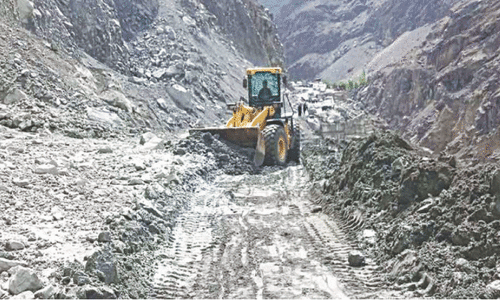ISLAMABAD, June 11: The government set up a secretariat on Saturday to assist the independent commission on the Abbottabad incident headed by Justice Javed Iqbal of the Supreme Court, indicating that it might begin its work soon despite its rejection by the Pakistan Muslim League-N.
According to a notification issued by the cabinet division, the secretariat has been established “with immediate effect to support and assist the commission in doing its work”.
On May 31, the government announced the setting up of the much-awaited inquiry commission on the May 2 US covert commando operation carried out to kill Al Qaeda chief Osama bin Laden in Abbottabad.
The commission had been demanded in a resolution adopted unanimously on May 14 by an in-camera joint sitting of both houses of parliament.
The commission includes Justice (retd) Fakhruddin G. Ebrahim, Lt-Gen (retd) Nadeem Ahmed, former inspector general of police Abbas Khan and former ambassador Ashraf Jehangir Qazi with Cabinet Division Secretary Nargis Sethi as its secretary.
Soon after the announcement, the commission was hit by various controversies as, besides its rejection by the PML-N, Justice Javed said he would head it only if allowed by Chief Justice Iftikhar Mohammad Chaudhry and Justice Fakhruddin said he would not be available for the task. Dawn
However, a source in the prime minister's secretariat told on Saturday that no member had officially informed it of his unwillingness to join the commission.
PML-N chief Nawaz Sharif said the commission had been constituted by Prime Minister Yousuf Raza Gilani without a 'mandatory consultation' with the Leader of Opposition leader in the National Assembly, Chaudhry Nisar Ali Khan, as required under the resolution. He said Chaudhry Nisar had also written a letter to the prime minister, suggesting some names for the commission.
The PML-N has also expressed reservations about the powers of the commission, saying the terms of reference (ToRs) suggested by the opposition leader in his letter have not been considered by the government.
The opposition party says the commission will be powerless under the ToRs issued by the government because it does not have the power to summon any government official or access official and sensitive documents.
Chaudhry Nisar had proposed that the commission be constituted under the Commission of Inquiry Act of 1956 and must submit its report to parliament within 30 days.
The government notification gives no timeframe.
According to the notification, the commission's task is “to ascertain the full facts regarding the presence of Osama bin Laden in Pakistan; investigate circumstances and facts regarding US operation in Abbottabad; determine the nature, background and causes of lapses of the concerned authorities, if any; and to make consequential recommendations”.
It was after a long and tense argument that parliament reached consensus on the 12-point resolution.
After over five hours of in-camera briefing by top military officers to the joint session of the National Assembly and Senate, it took almost another five hours of deliberations between the negotiators of the PPP and PML-N and behind-the-scene contacts between the prime minister and the opposition leader for both sides to agree on the most contentious issue of setting up the inquiry commission.
An investigation by the army adjutant general had already been ordered.
The ruling coalition and military officers, the sources said, were against the idea of the judicial commission demanded earlier by the PML-N. They believed that the move would once again pitch the military and the judiciary against each other. Later, however, the PPP and the military officers agreed to the demand.
The commission was also mentioned in a press release issued by the ISPR
after a corps commanders' meeting held on Thursday.
“The participants noted with regret that despite briefing the joint session of parliament and deferring the ultimate findings to the commission appointed by the government, some quarters, because of their perceptual biases, were trying to deliberately run down the armed forces and army in particular,” the statement said.
It cautioned that the campaign against army would be seen as an attempt to “drive a wedge” between the military, the various organs of the state and the people.












































